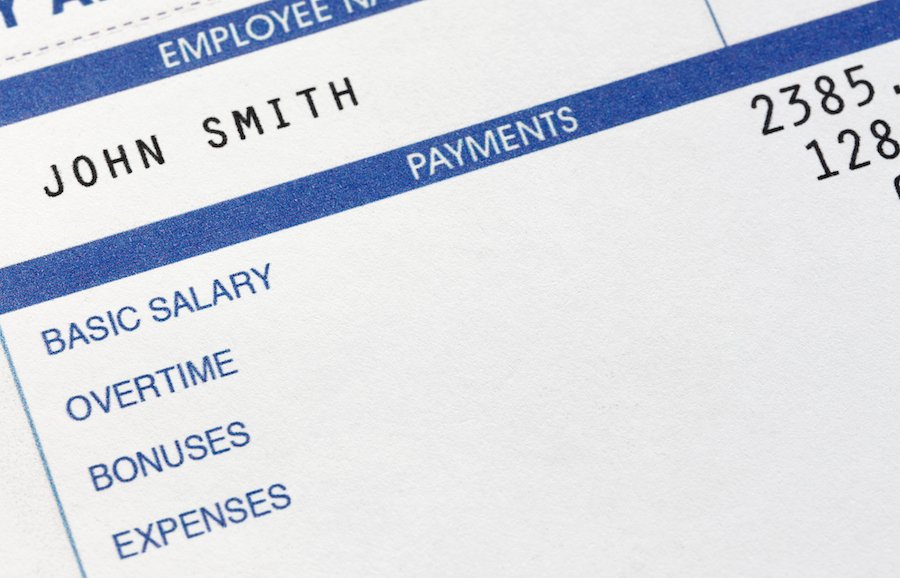
Bonus pay can impact overtime calculations for non-exempt employees if it is a nondiscretionary bonus. These bonuses can change the worker’s regular rate of pay, which is used to calculate overtime pay.
Discretionary bonuses, on the other hand, generally do not alter the regular rate of pay and do not impact overtime.
How does overtime pay work?
Non-exempt employees are entitled to time-and-a-half pay for every hour they work beyond 40 hours in a workweek. The amount of this overtime pay is based on the regular rate at which they are employed.[1]
Only non-exempt employees have the right to overtime pay. Under state employment law and the federal Fair Labor Standards Act (FLSA), employees with an exempt status do not have this right.
What is a bonus?
A bonus is a payment that is made in addition to the employee’s regular salary level. Bonuses are used by employers for several reasons:
- to show gratitude for contributions to the workplace,
- provide incentive payments to reward hard work, or
- to boost employee morale.
Examples of bonuses
- holiday bonuses,
- a monetary reward or referral bonus for securing a new client or finding new business,
- awards for attendance or meeting an hour quota,
- extra pay for a high level of productivity or especially good work, or
- profit-sharing during a good period for the business.
Bonus categories
All bonuses fall into 2 categories:
- Discretionary bonuses, and
- Nondiscretionary bonuses.
The difference between these types of bonuses is significant. Nondiscretionary bonuses are included in a worker’s regular rate of pay. This means that they can alter overtime pay calculations.
Discretionary bonuses do not impact the regular rate of pay and have no effect on overtime.
What is a discretionary bonus?
A discretionary bonus is a payment in addition to the employee’s regular earnings that is not expected by the employee and is in the sole discretion of the employer. These bonuses are not included in the employee’s regular rate of pay.[2]
To be a discretionary bonus, the payment has to meet certain statutory requirements.
Under the FLSA and regulations promulgated by the U.S. Department of Labor (DOL) through its Wage and Hour Division (WHD), a bonus is only discretionary if:
- the employer has sole discretion over whether to pay it and how much it will be,
- that discretion lasts until at or near the end of the pay period during which the bonus would be made, and
- there is no prior contract or agreement regarding the bonus that would make the employee expect that it would be made regularly.[3]
Money payments to employees can also be discretionary bonuses if they are holiday gifts or rewards for service that are not measured by the number of hours worked, or by their productivity in the workplace.[4]
Importance of FLSA requirements
It does not matter whether an employer claims a bonus is discretionary or not. The bonus can be labeled by the employer as a discretionary one, but if it fails to meet the FLSA’s legal requirements then it will be treated as a nondiscretionary bonus.[5]
Examples of discretionary bonuses
- severance bonuses,
- bonuses for being “employee of the month,” so long as the employer has sole discretion to choose who the winner is,
- rewards for overcoming challenging or stressful situations, and
- payments to workers who made contributions to the workplace that would not be entitled to a bonus under pre-established criteria.[6]
Such payments are not included in an employee’s regular rate of pay. This means that discretionary bonuses cannot impact the calculation of a non-exempt employee’s overtime pay.
What is a nondiscretionary bonus?
A nondiscretionary bonus is any additional payment to the employee that does not amount to a discretionary bonus.
The key difference is the employee’s expectations: If the employee could expect to receive the bonus, then it will be a nondiscretionary one.
Examples of nondiscretionary bonuses
Examples of nondiscretionary bonuses include additional payments for:
- days without a workplace accident,
- promised sign-on bonuses,
- bonus payment required by the employee’s contract or in a collective bargaining agreement,
- monetary attendance incentives,
- bonuses for quality or accuracy of work,
- production bonuses with a predetermined formula, and
- bonuses for staying with the employer for longer than a set amount of time (“retention bonuses”).[7]
These nondiscretionary bonuses are included in the employee’s regular rate of pay. This means they can alter the calculations for overtime pay.

Discretionary bonuses are not expected by the employee.
How can a bonus change overtime pay?
Employees working overtime hours are paid at one-and-a-half times their regular rate of pay. If a bonus is included in their regular rate of pay, it will increase the baseline for calculating overtime pay earned by the worker.
Example: Sam is a non-exempt worker who makes $20 per hour. In the course of one week, he works 50 hours. This means he has earned a $1,100 weekly salary: $1,000 for 50 hours of straight time at $20 per hour, plus $100 in overtime payment for 10 hours, for which Sam earned an additional $10 hourly rate.
Sam also earns a $100 bonus during this pay period. If the bonus is discretionary, it would simply get added to his week’s pay and Sam would receive $1,200. If it is nondiscretionary, it would go towards his regular rate of pay, raising it from $20 per hour to $24 per hour. This would also mean that his time-and-a-half pay for the 10 overtime hours would rise, as well, to an overtime premium of $120, increasing his total compensation to $1,220.
What is the difference between exempt employees and non-exempt employees?
Employees who are classified as non-exempt workers have 3 important rights that exempt workers do not have:
- minimum wages,
- meal and rest breaks, and
- overtime compensation.
Because exempt employees have an exemption from overtime pay requirements, any bonuses that they receive – whether discretionary or nondiscretionary – will not impact their underlying fixed salary.
To be an exempt employee under the FLSA, a worker has to:
- make at least the minimum salary basis for exempt workers,
- work in a white-collar role with primary job duties that are administrative, executive, professional, or satisfy the applicable duties test for the industry, and
- use their discretion and independent judgment in their role.[8]
Note that if an employer wants to pay an employee enough money to make them exempt, they can use nondiscretionary bonuses and incentive payments to satisfy up to 10% of the employee’s salary.[9]
What is the law in California?
The FLSA applies across the United States. State law in California mirrors the requirements of the FLSA, though it also requires all bonuses to be timely paid.[10] This usually means that the bonus has to be paid on the payday for the pay period during which the bonus was earned. Failure to do so can violate the state’s wage and hour laws and lead to a lawsuit.
Additional reading
For more in-depth information, refer to these scholarly articles:
- The Role of Bonus Pay in Salesforce Compensation Plans – Industrial Marketing Management.
- Human capital, pay structure, and the use of performance measures in bonus compensation – Management Accounting Research.
- Bonus Culture: Competitive Pay, Screening, and Multitasking – Journal of Political Economy.
- Lump-sum Bonus Satisfaction: Testing The Construct Validity Of A New Pay Satisfaction Dimension – Personal Psychology.
- Discretion in Bonus Plans – The Accounting Review article on how employer discretion plays into paying out bonuses to employees.
[2] 29 USC 207(e).
[3] See 29 USC 207(e)(3)(a) and 29 CFR 778.211(b).
[4] 29 USC 207(e)(1) and 29 CFR 778.212.
[5] 29 CFR 778.211(d).
[6] Same.
[7] See 29 CFR 778.211(c).
[9] Fact Sheet 17U: Nondiscretionary Bonuses and Incentive Payments (Including Commissions) and Part 541 Exempt Employees, DOL Wage and Hour Division.

